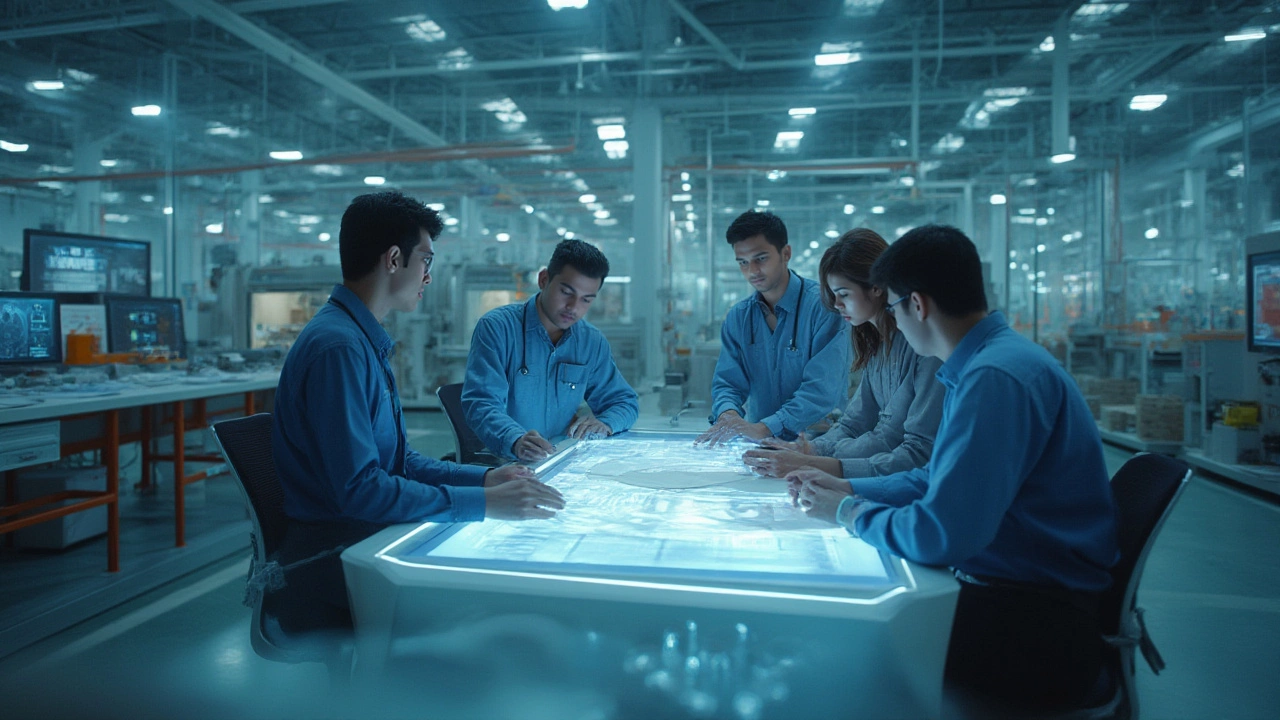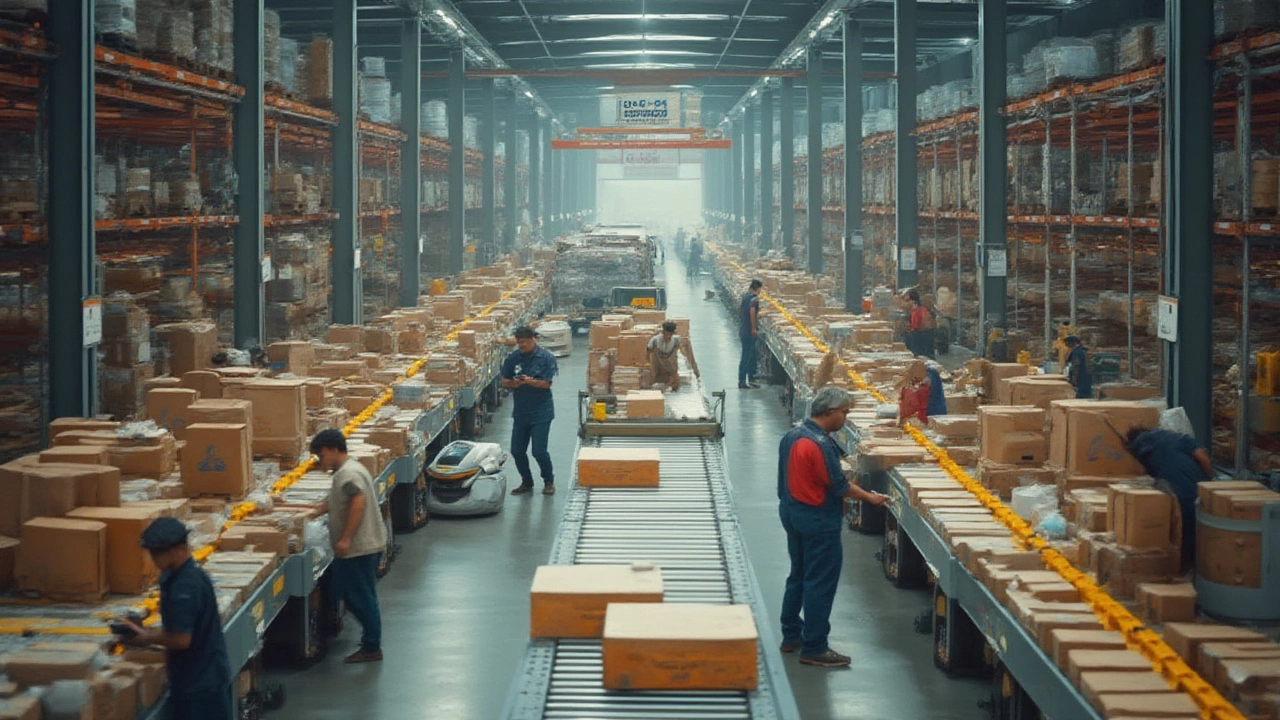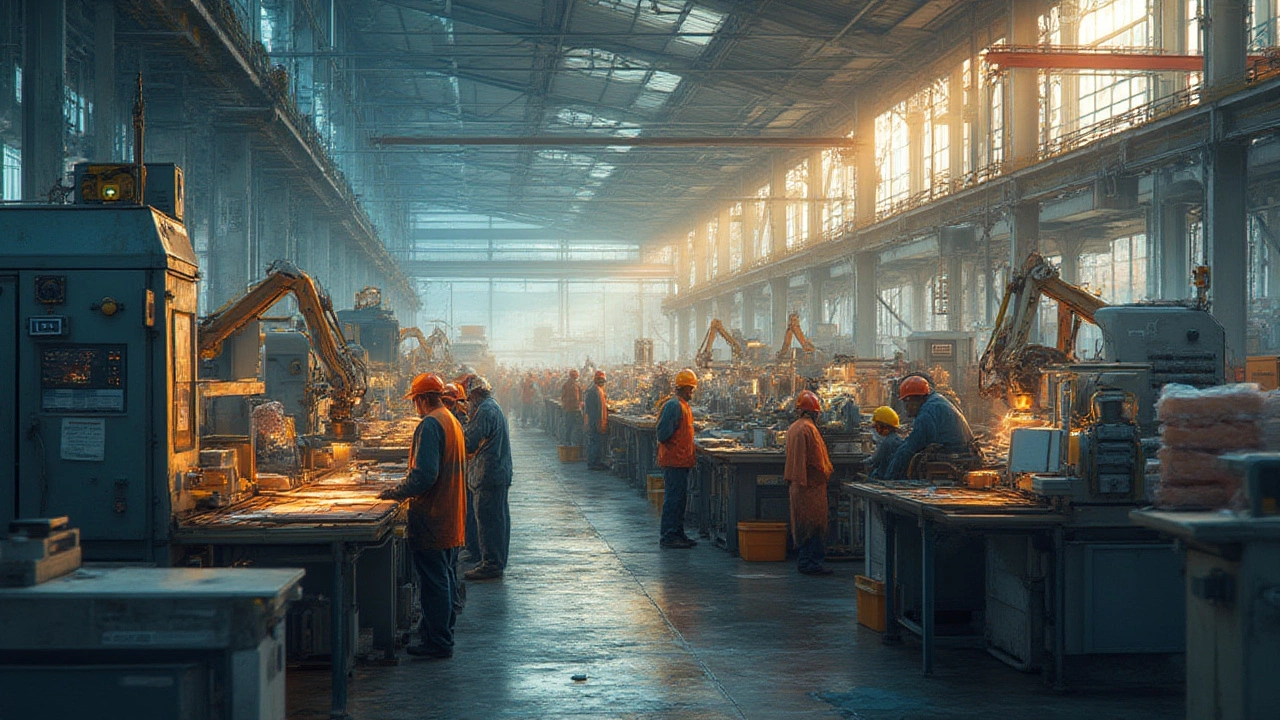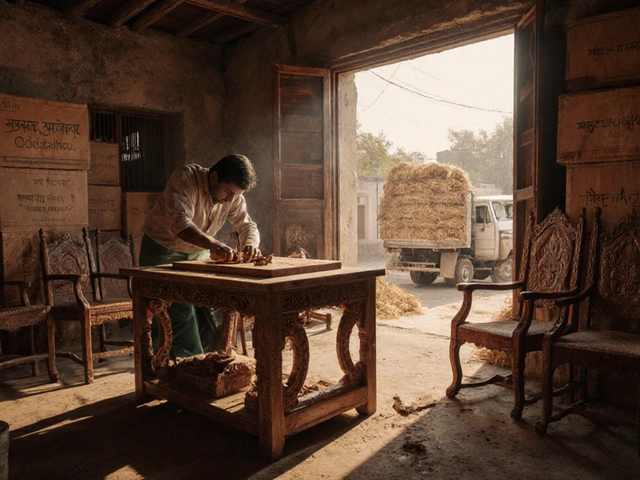Think manufacturing is just about people on assembly lines screwing parts together? Picture this: in 2025, a single car can have up to 30,000 components, and behind every component, there’s a web of experts handling everything from high-tech robotics maintenance to strict quality tests. Manufacturing today is all about blending brains with cutting-edge machines, a world where a software update can be as critical as a wrench. Jobs in this sector touch nearly every part of the economy—from the phone in your hand to the breakfast cereal in your bowl. Let’s dig into the real players and endless career possibilities in manufacturing right now.
From the Floor to the Corner Office: Key Manufacturing Roles
If you walk into any large factory or even a small workshop, you’ll notice it's not just humming because of machines. It's all sorts of people in action, each with a specific job—some obvious, others you might not expect. The most visible ones are the production workers. These folks operate and maintain machines, assemble products, pack goods, and keep quality high. Machine operators and assemblers are in almost every sector—from automobile lines in Pune to electronics factories in Shenzhen. A machine operator’s typical day? Setting up equipment, monitoring outputs, doing minor repairs, and making quick decisions to avoid downtime.
But let’s not forget about skilled tradespeople—fitters, welders, electricians, toolmakers, and machinists. These people are part artist, part technician, breathing life into raw material. In 2024, Indian manufacturing saw a 13% growth in demand for welders and machinists, thanks to expansion in electric vehicle production. With more automation, the lines between blue-collar and white-collar jobs blur. There are also production planners, logistics coordinators, and quality controllers. Production planners, for instance, juggle schedules, source material, and optimize throughput. It’s like solving a thousand-piece puzzle every day—if one piece is missing, the whole system can slow down or halt.
Mid-level and senior jobs also pack a punch. Plant managers steer the entire ship, from HR and safety to bottom-line profits. Maintenance engineers and supervisors are critical—machines never sleep, so these experts are always on call. One cool fact: modern plants are run with predictive maintenance software, which means sensor data warns maintenance teams of breakdowns before they happen, minimizing costly halts.
So, if you think manufacturing jobs are all about physical labor, think twice. Many roles combine hands-on skills with critical thinking—think process engineers tweaking lines for efficiency, supply chain managers plotting out material flows, or data analysts crunching numbers for productivity hacks.

The Rise of Tech in Manufacturing: Digital, Automation, and Clean Roles
If your idea of factories involves noise and oil stains, time for a reboot. Digital drives manufacturing now. As of early 2025, nearly 40% of large manufacturers in Asia use AI-powered systems. Automation engineers, robotics technicians, and programmers are hot property. They install, monitor, tweak, and fix robots, ensuring production doesn’t hit a snag. The people designing software for factory automation—think SCADA or PLC programmers—play a big role in keeping production lines humming around the clock.
Data science has muscled its way onto the factory floor. Even food processing plants analyze thousands of data points per hour for better hygiene and efficiency. Data analysts, machine learning specialists, and industrial IoT experts are now regular faces in factory meetings. In fact, a 2024 manufacturing study found that over 62% of firms plan to hire digital transformation leads by next year.
Don’t overlook quality assurance—one mistake in assembly can cost millions or risk lives. QA specialists use computer modeling, statistical analysis, and hands-on inspections to spot flaws before products ever leave the plant. In pharmaceuticals and food processing, roles like microbiologists and chemical analysts test batches daily for safety.
Remember green jobs? Thanks to strict regulations and savvy consumers, sustainability is big. Environmental engineers, energy managers, and EHS (Environment, Health, and Safety) officers are now critical hires. They reduce waste, cut emissions, and keep factories compliant with everything from local safety codes to global climate pledges.
Here’s a table you don’t often see: Key Tech and QA Roles in a Modern Factory (2025):
| Role | What They Do | Why Important |
|---|---|---|
| Automation Engineer | Designs, runs, fixes robots/AI systems | Keeps plants up-to-date, cuts labor costs, boosts consistency |
| Data Analyst | Analyzes production info, suggests process tweaks | Finds small gains that pile up to big changes |
| QA Specialist | Tests samples, checks for defect trends | Guarantees product safety and brand trust |
| EHS Officer | Monitors factory safety, manages waste/energy | Stays ahead of the law and clean manufacturing |
| SCADA/PLC Programmer | Creates software for automated controls | Lets machines talk, reduces manual errors |
If high-tech excites you, manufacturing offers a front-row seat. Many of these jobs pay well above national averages, especially when you add overtime and bonuses for specialized skills.

Support Systems: Logistics, Administration, and Supply Chain Pros
Factories don’t exist in a vacuum. Once products are made, they’ve got to reach customers—smoothly and on time. That’s where logistics and supply chain managers come in. You’ll find schedulers, route planners, warehouse supervisors, and purchasing officers—all working as a tight unit. Believe it or not, about 50% of a manufacturer’s expenses relate to moving and storing material, not building products.
Procurement officers hunt for the best deals on raw materials, while supply chain analysts track everything from steel prices to geopolitical risks. If a ship gets stuck at port, or a pandemic interrupts critical semiconductor deliveries, these folks pivot fast to source alternatives. With the rise of just-in-time inventory systems, these jobs have become even more nerve-wracking—and interesting.
On the admin and HR side, there are training coordinators, safety trainers, payroll experts, and labor relations specialists. The manufacturing workforce is often a melting pot of experience levels and backgrounds. HR teams keep the wheels greased: they recruit skilled workers, manage credentials, and track compliance training. And when it comes to upskilling—say, training a team on operating new CNC machines—training managers bridge the old-school and new.
Financial analysts and accountants round out the back office. They track costs, forecast sales, and work closely with supply chain teams to keep profits healthy, even when raw material prices swing wildly. With tight margins, their roles have never mattered more.
If you think about all the parts working behind the scenes, manufacturing jobs start to look a lot less one-note. Here’s a quick tip: if you’re interested in breaking into the industry, focus on technical certifications relevant to your sector. For example, a PLC (Programmable Logic Controller) certificate gets your foot in the door for automation roles. Want to work in quality? An ISO 9001 auditor course is a smart move. And for supply chain, Six Sigma or SAP training can set your resume apart.
Manufacturing isn’t just surviving in the digital age—it’s thriving and transforming fast. Whether you’re more hands-on, analytical, or interested in greener solutions, there’s a job behind every product you’ll touch today. It’s a field where every role, from technical to tactical to administrative, powers the engine that makes modern life run. If you ever wondered where the magic happens, now you know—it's on the factory floor, in the control room, and on a digital dashboard, all at once.











Write a comment